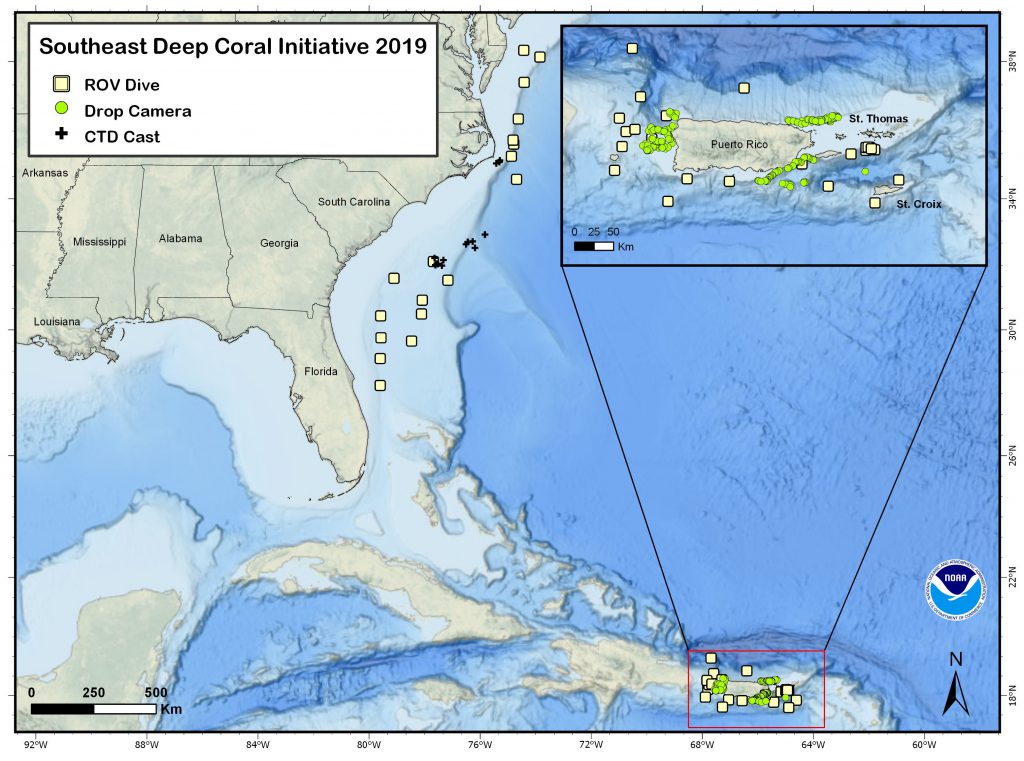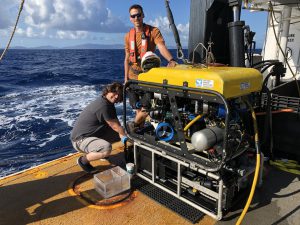
The Southeast Deep Coral Initiative (SEDCI) completed another year of field research in 2019. SEDCI is a multi-year, cross-line office initiative to study deep-sea coral and sponge ecosystems off the Southeast U.S. that began in July 2016.
Highlights of Work Done in Fiscal Year 2019:
- 4 expeditions, in partnership with NOAA’s Office of Exploration (OER) and NOAA’s Coral Reef Conservation Program
- 67 days spent at sea in the U.S. West Atlantic
- Over 44,000 square kilometers of seafloor mapped
- 70 remotely operated vehicle (ROV) dives
- Researchers also presented talks and posters at the 7th International Symposium on Deep Sea Corals in Cartagena, Colombia.
In 2019, two SEDCI projects focused on the U.S. Caribbean — a deep biodiversity assessment, and a citizen science project with fishermen. In the first, NCCOS researchers joined forces to conduct biological sampling aboard NOAA Ship Nancy Foster. Using an ROV, the team collected 41 samples in 14 octocoral taxa to develop a new field guide, support habitat models, and contribute to population connectivity studies.
NOAA National Marine Fisheries Service (NMFS) researchers also worked together with commercial fishermen in Puerto Rico, using a drop camera to capture video of 215 Queen Snapper sites. Preliminary data show deep corals in 78 percent of sites on the West coast, 61 percent in the Southeast and 17 percent in the Northeast. Sixty-six fish species were seen and 46 Queen Snapper were caught for age and growth studies.
The four-year initiative, funded by NOAA’s Deep Sea Coral Research and Technology Program, is a collaboration between NOAA’s National Ocean Service and NCCOS, NOAA Research, NMFS, OER and the National Environmental Satellite, Data and Information Service (NESDIS).
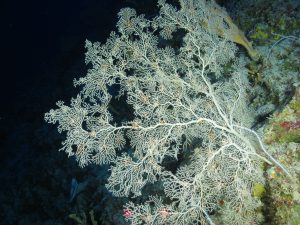
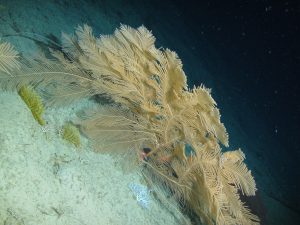
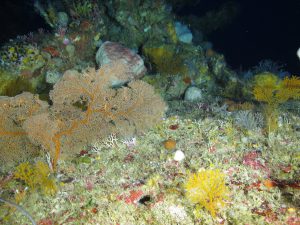
Above: Deep sea corals from the Caribbean. Credit: NOAA NCCOS.
For more information, contact Peter Etnoyer, NCCOS Deep Coral Ecology Lab.
